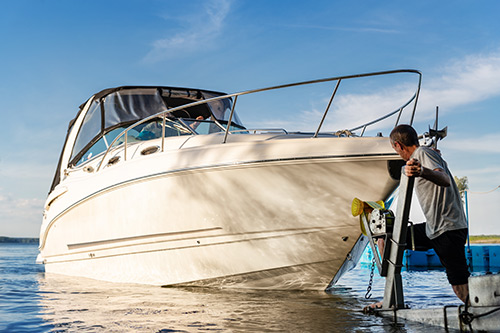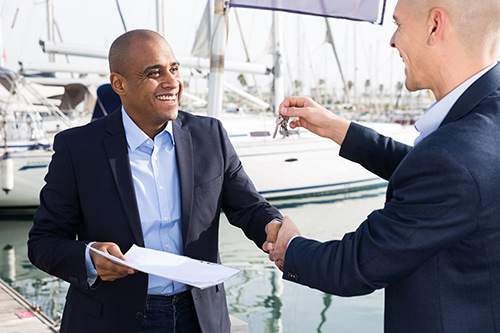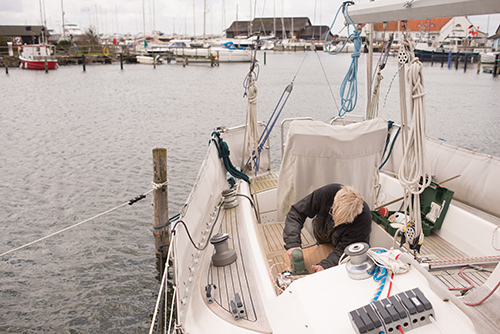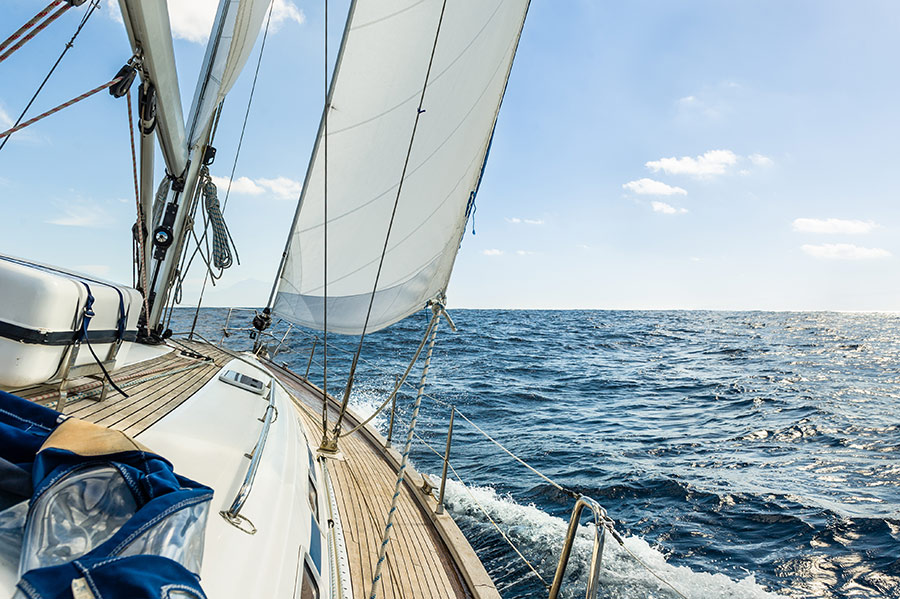
When you trailer your boat to a launch, there's only one thing between you and the water — a boat ramp!
Some people make boat launching look easy. But it's a touchy, tricky business, especially for new boaters. If you've struggled in the past, don't give up in frustration. Practice makes progress!
Here are eight tips for getting your boat back to its natural habitat!
Practice, practice, practice.
With experience comes confidence. Instead of getting this experience at a crowded boat ramp with an overabundance of impatient, opinionated spectators, consider going to an empty parking lot—you can practice by backing the trailer into a parking space.
Nonverbal communication is key.
Sometimes the sounds of engines, stereos and other noises drown out verbal directions from your co-captain. Avoid this frustration by agreeing on a few common hand signals for "stop," "left," "right," "start over" and "perfect."
Slow and steady is the way to go.
Take a deep breath and disregard the pressure to move fast. This will only lead to mistakes. Take it slow—there isn't a time limit—and control the majority of vehicle movement with your brake pedal.
More brake, less gas.
Backing down a ramp requires only a little gas. Instead, focus on using your brakes and checking your mirrors. For optimum maneuverability, make adjustments with your brake applied—hold the brake, turn the wheel to where you want it and then release.
Consider 8-4 instead of 10-2.
Backing up with your hands in the traditional 10-2 position is OK, but many prefer switching to 8-4 instead. With hands at the bottom of the wheel, you push in the direction that the trailer moves, which can feel more natural.
Get used to different trailer sizes.
Recognize that not all trailers and boats behave the same when being towed. Generally, a longer boat trailer is easier to back up and harder in forward turns; a shorter boat trailer is the opposite.
Try correcting a jackknife before restarting.
While holding the brakes, turn your steering wheel all the way in the opposite direction of the jackknife. Then pull forward slowly—if effective, your tow vehicle and trailer will realign.
Don't forget the guide poles.
Placing guide poles on your trailer will increase visibility, making it easier to maneuver. Try using them and see if they give you the confidence of a boat-launching pro!
Source: foremost.com




